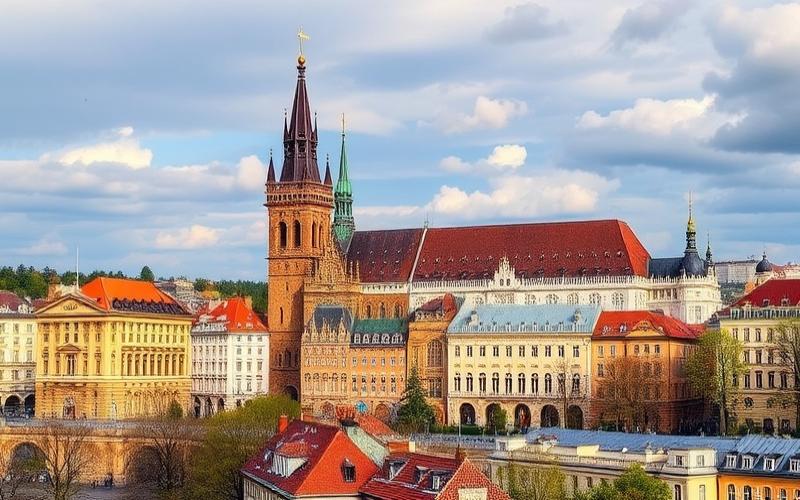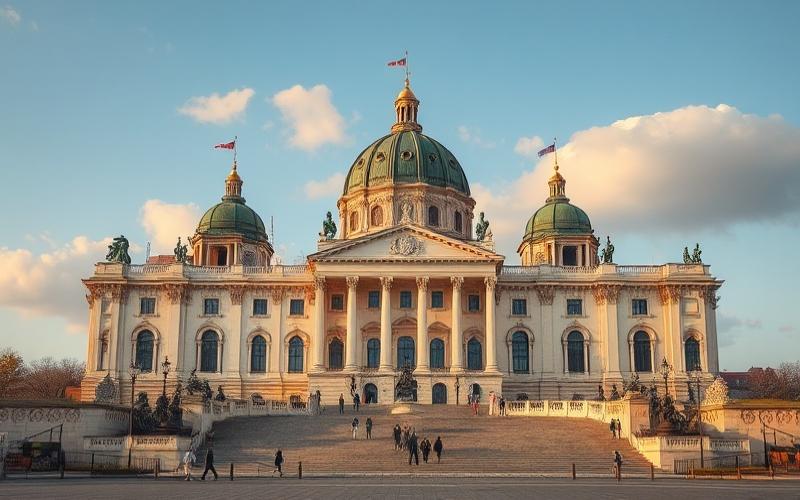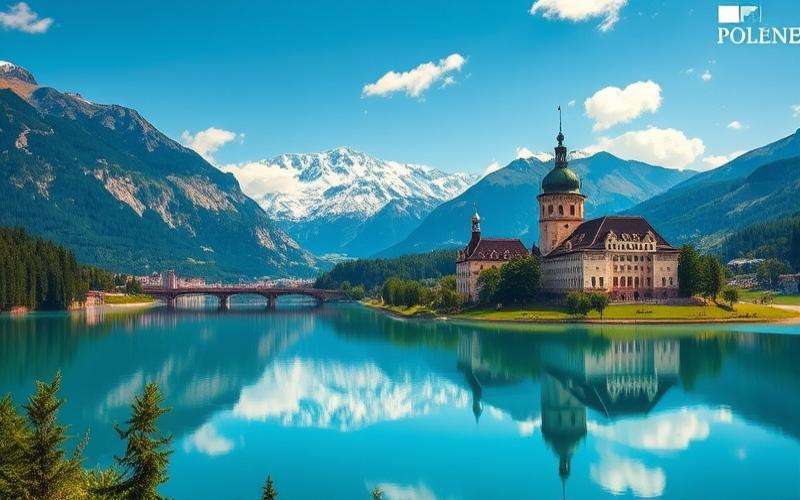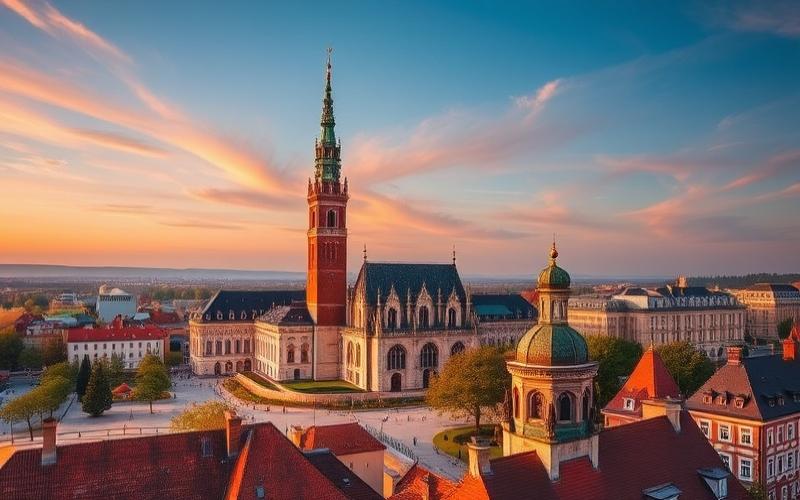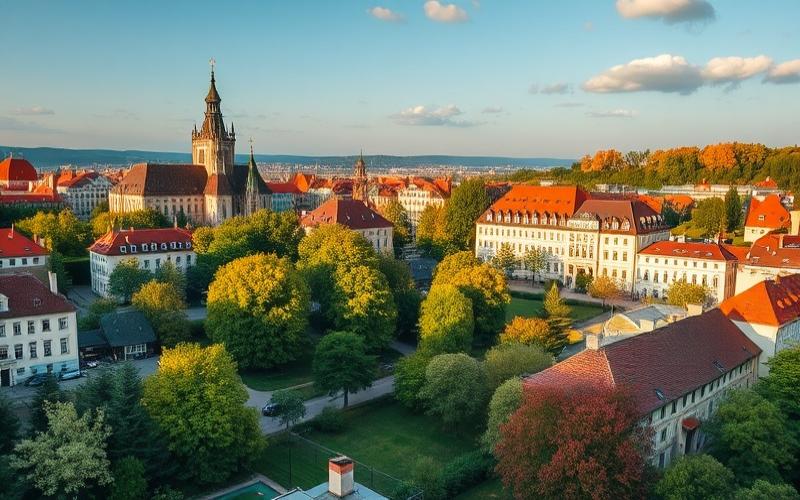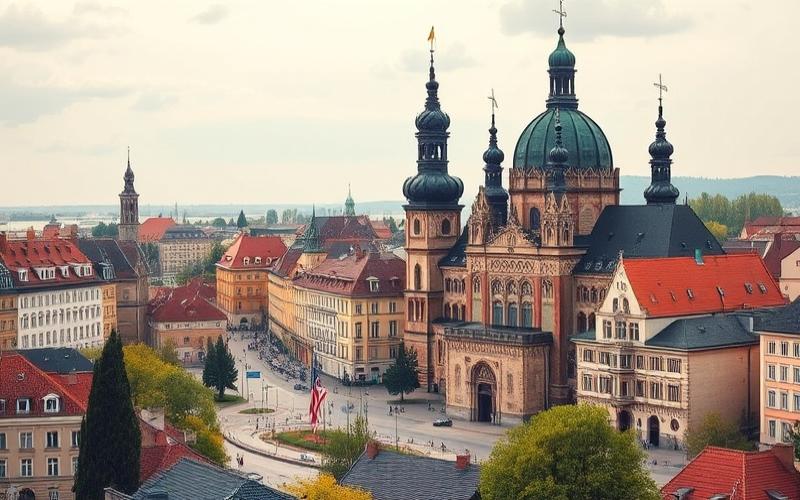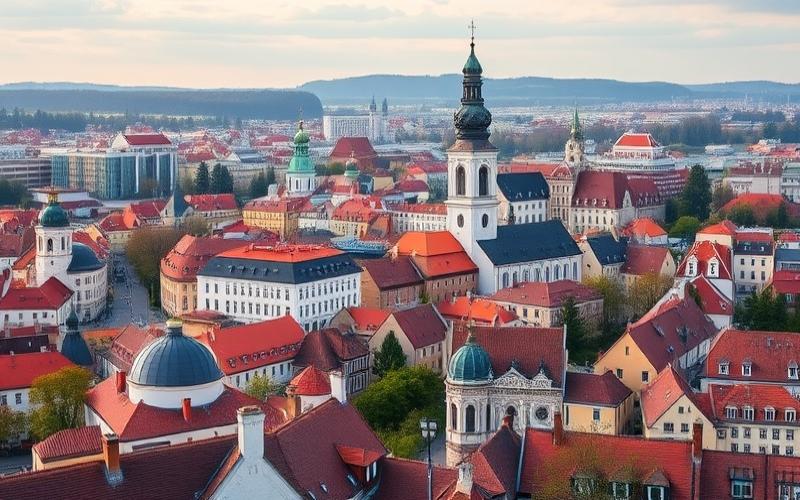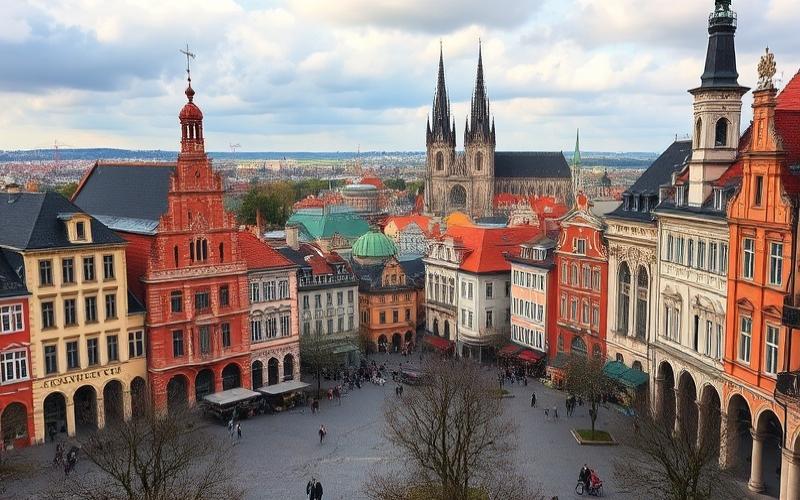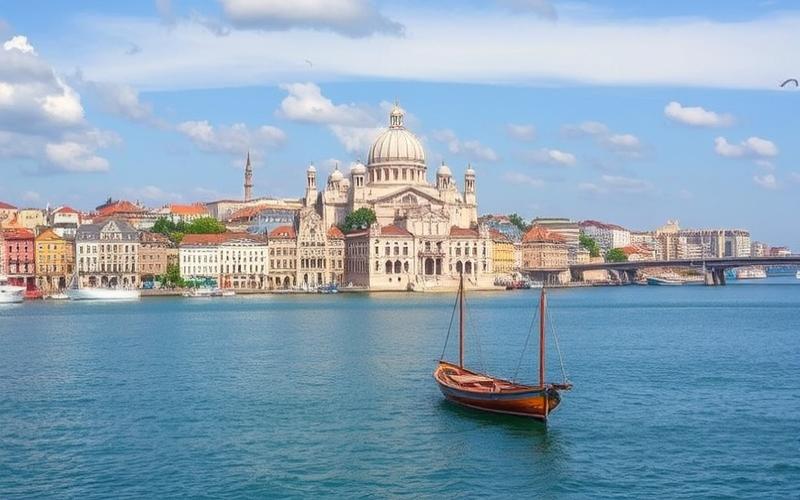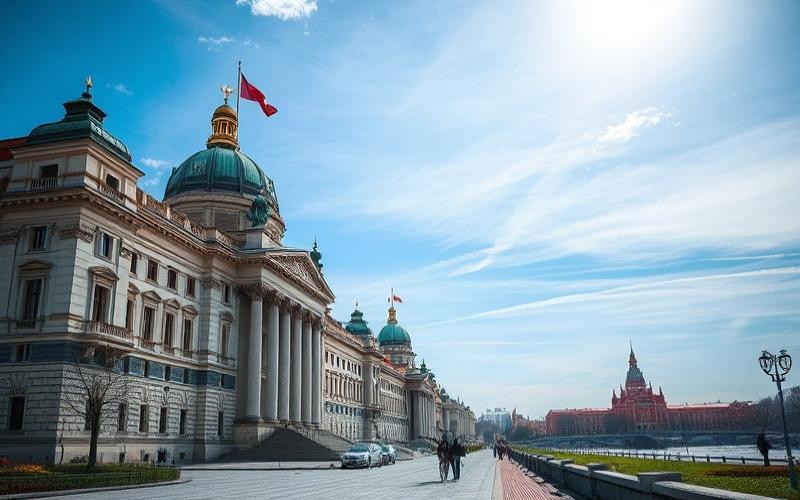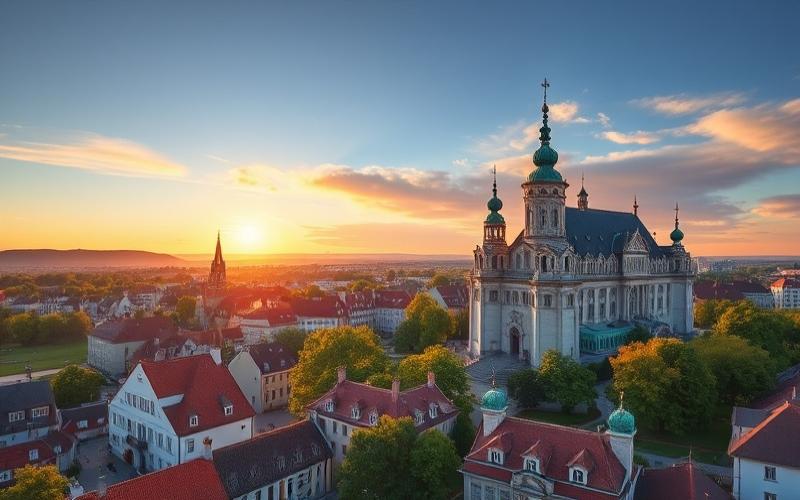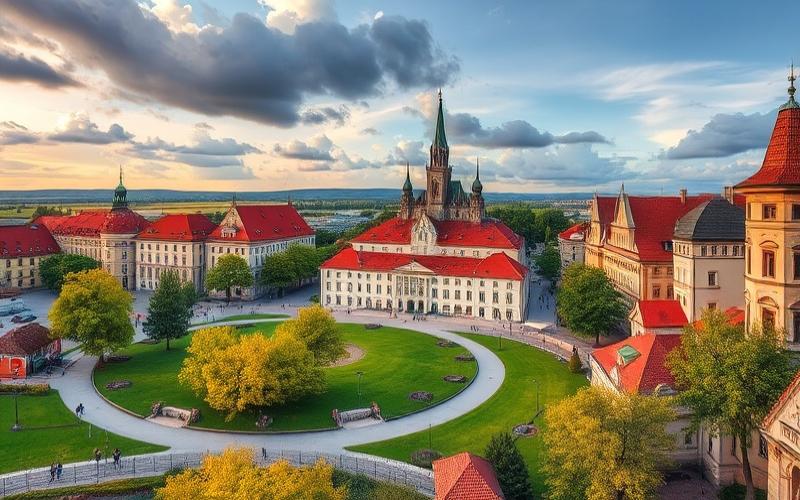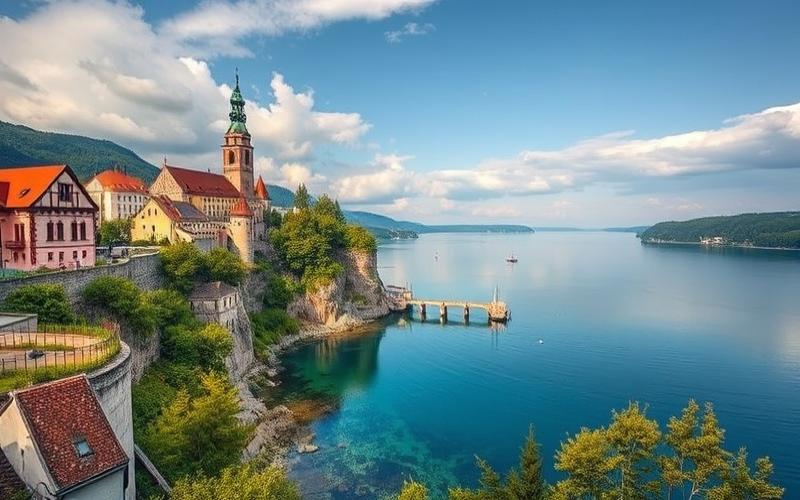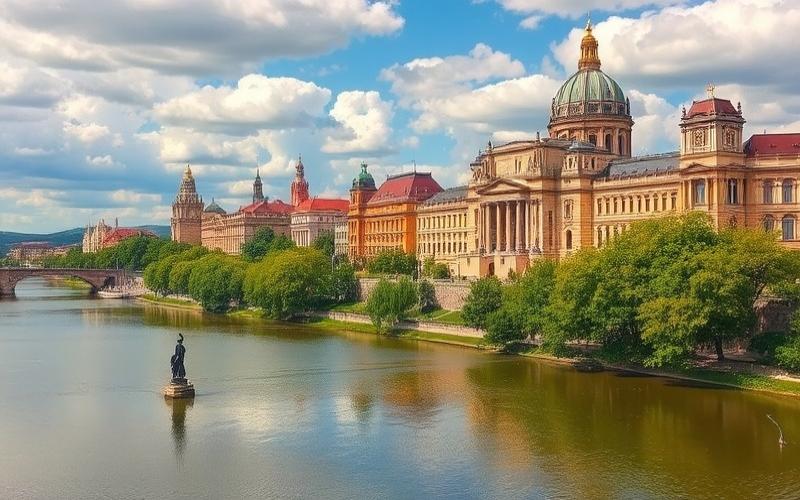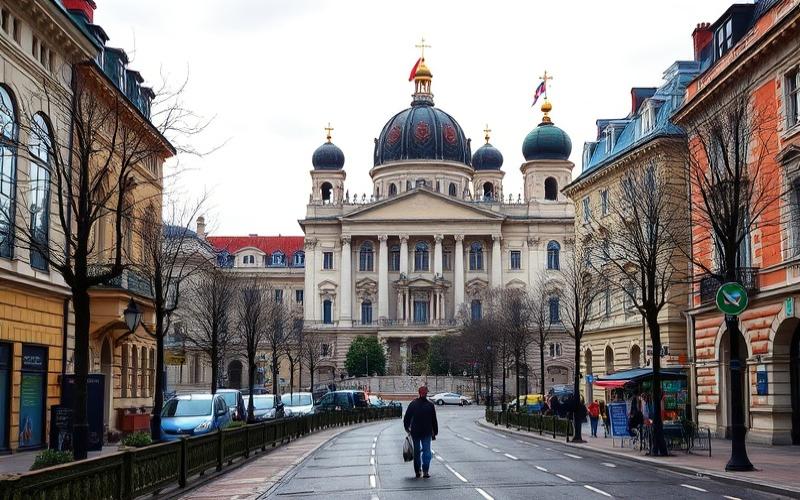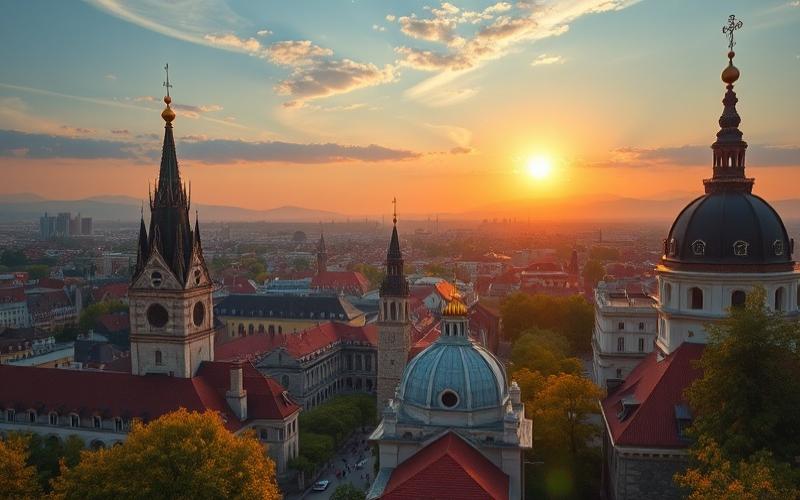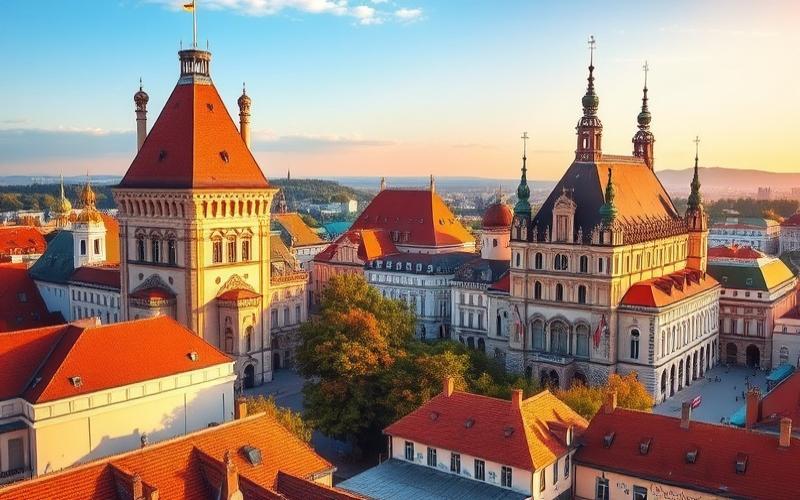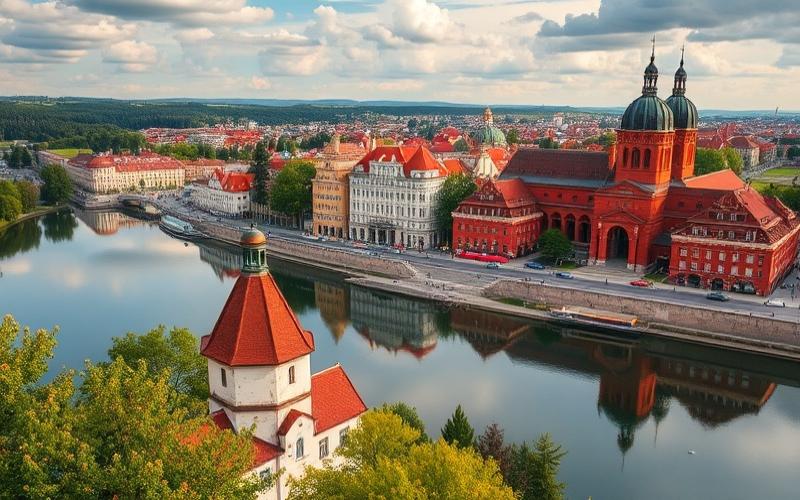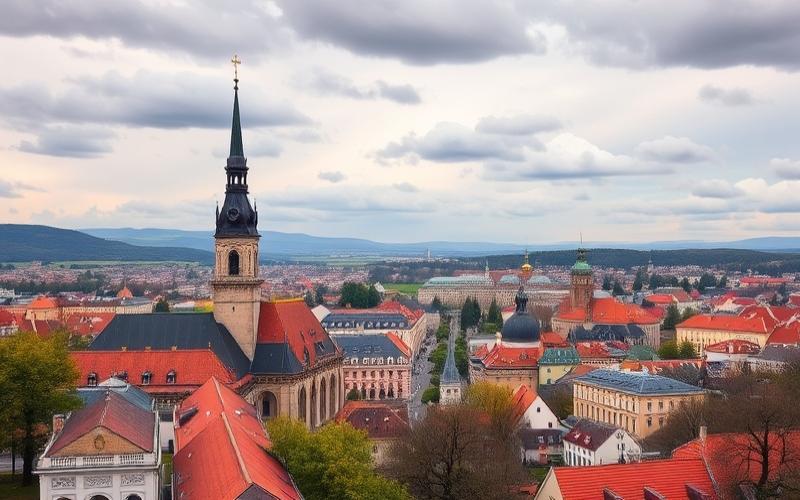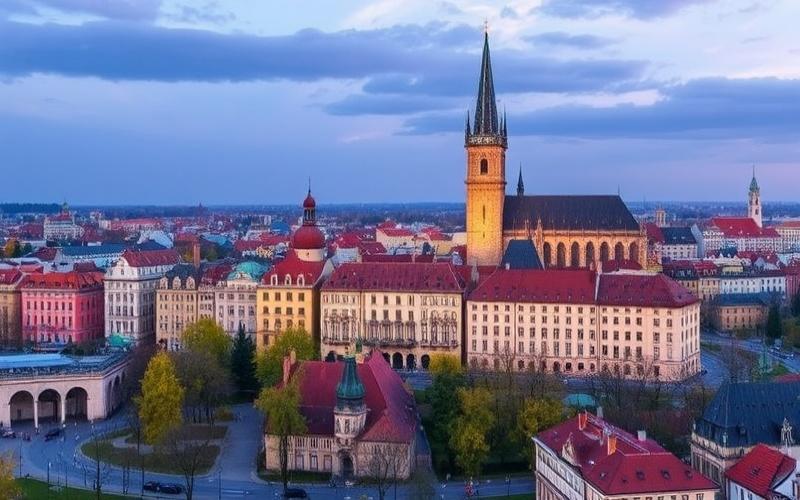
 Published on and written by Cyril Jarnias
Published on and written by Cyril Jarnias
In search of a retirement that is both peaceful and dynamic, expatriate seniors are increasingly turning their attention to Poland, a country offering promising opportunities and exceptional quality of life. With its highly attractive living environment, combining historic cities and picturesque natural landscapes, Poland presents investment options that appeal to a growing number of foreign retirees.
Whether you’re drawn to the cultural ambiance of Krakow or the coastal charm of Gdansk, investing in Poland could well transform your retirement dream into reality.
Discover the Best Investment Strategies
Optimizing your taxes and benefiting from modern infrastructure—this is what this article invites you to explore, in order to turn your retirement into a true haven of peace.
Everything You Need to Know About Real Estate in Poland for Expatriate Seniors
Attractive Cities for Expatriate Seniors in Poland
- Krakow: A historic city with a rich cultural atmosphere, Krakow attracts many seniors thanks to its quiet, green neighborhoods, its UNESCO World Heritage sites, and its adapted infrastructure (accessible transportation, modern hospitals).
- Warsaw: A dynamic capital offering excellent quality medical care, varied services for foreigners, and a wide choice of serviced residences. The cultural life is vibrant (museums, concerts), appealing to active retirees.
- Gdansk: A port city on the Baltic Sea known for its pleasant lifestyle, beneficial sea air, and attractive real estate costs. Gdansk attracts those seeking tranquility while enjoying a historic urban setting.
Cost of Living Comparison and Financial Benefits
| Expense Category | Poland (major city) | France (major city) |
|---|---|---|
| Monthly individual cost including housing | €1,390 | €1,710 |
| Family (4 people) including housing | €3,465 | €4,766 |
| 3-bedroom apartment downtown | ~€629/month | >€1,200/month |
| Restaurant meal | half price | — |
- The cost of living is generally 25% to 50% lower than in France or other Western European countries, particularly for housing, food, and leisure.
- Rents are up to 60% cheaper, especially in cities like Gdansk or Krakow.
- For retirees benefiting from a foreign pension not taxed locally due to existing bilateral tax treaties between France/Belgium/Switzerland and Poland (situation to be verified on a case-by-case basis with a specialized tax advisor):
- No or low taxation on certain foreign income
- Favorable taxation compared to Portugal or Spain
Popular Housing Types Among Seniors
List of preferred housing types:
- Secure apartments with elevators in city centers
- Serviced residences (“apartamenty senioralne”), offering concierge services, optional dining, social activities
- Small single-family homes in urban outskirts
Appreciated features:
- Accessibility for people with reduced mobility
- Enhanced security
- Proximity to medical facilities
Healthcare Options for Expatriate Seniors
Expatriates can choose between two systems:
- Polish public health insurance (“Narodowy Fundusz Zdrowia”, NFZ) – accessible after official registration; adequate basic coverage but sometimes long wait times outside major cities.
- International private insurance – recommended for quick access to the best private facilities often located in Warsaw or Krakow.
Main advantages of the Polish system:
- Modern hospitals in all major cities
- Well-developed specialized geriatric services
- Wide availability of English/French-speaking staff in the private sector
Legal Aspects of Property Purchase by Foreigners
Simplified list of procedures:
- European citizens can freely purchase apartments/houses without special permits since EU accession.
- For a single-family home with land outside urban areas: sometimes an obligation to obtain a specific ministerial permit.
- Essential verification of the land register (“księga wieczysta”) before purchase to ensure the property is free of mortgages/easements.
Practical tips:
Always hire an experienced bilingual local notary
Plan for sworn translation if needed
Prefer agencies specialized in working regularly with international clients
Testimonials / Anecdotes
“We chose Gdansk three years ago; here everything is simpler: easy access to healthcare even without speaking Polish thanks to French-speaking staff… We live very comfortably on our French pension!”
“In Warsaw I found a modern senior residence with private green spaces… I especially appreciate the many activities organized weekly by the management!”
Useful Resources & Contacts
Indicative list:
- Real estate agency specialized in senior expatriation:
https://www.polandsothebysrealty.pl/ – Multilingual service - Bilingual legal advice:
https://notariusz-warszawa.com.pl/ – Notaries accustomed to international clients - Recommended private health insurance:
https://www.allianz.pl/en.html - French-speaking forum sharing experiences & practical tips:
https://www.facebook.com/groups/francaisenpologne - For personalized tax procedures: consult https://www.pwc.pl/en/services/hr/payroll-expatriate-tax-services.html
Good to Know:
Krakow, Warsaw, and Gdansk are among the Polish cities favored by expatriate seniors for their rich cultural heritage and affordable cost of living compared to other European countries. Poland offers a favorable tax framework for foreign retirees, particularly a tax system often lighter on pensions. Serviced apartments are gaining popularity, offering security and amenities, while the country has a good healthcare network accessible to expatriate residents via European health insurance. It is essential for foreign buyers to comply with Polish laws requiring specific permits for certain types of properties; advice from a specialized real estate agency is often valuable. Expatriates report a pleasant living experience and substantial savings on daily expenses, recommending the Pol-Expat real estate agent as a key resource for navigating this market.
Key Takeaway:
The affordable lifestyle combined with a welcoming environment now makes Krakow, Warsaw, or Gdansk three top destinations for French retirees wishing to fully enjoy their European retirement!
The Best Cities for a Peaceful Retirement in Poland
Important Criteria for Choosing a Retirement City in Poland:
- Cost of living: Polish cities generally offer a lower cost of living than Western Europe, with attractive rents and affordable services.
- Medical infrastructure: Access to modern hospitals, private clinics, specialized doctors, and well-distributed pharmacies.
- Social and cultural activities: Presence of museums, theaters, local events, urban parks, senior clubs, and universities of the third age.
- Beauty & tranquility: Historic cities with protected heritage or seaside/mountain resorts offering peace and green spaces.
| Criterion | Importance for Retirees |
|---|---|
| Housing cost | Manage monthly budget |
| Medical quality | Quick access to care |
| Cultural activities | Maintain an active social life |
| Natural environment | Physical & mental well-being |
| Public transportation | Ease of movement without a car |
Polish Cities Renowned as Ideal for Retirees
1. Krakow (Kraków)
- Specific attractions:
- UNESCO-listed historic center; architectural wealth (Main Market Square, Wawel Castle).
- Dense cultural offerings (theaters, international festivals).
- Numerous urban parks (Planty Park), lively cafes suitable for seniors.
- Estimated senior population:
- Approximately 20% of the population is over 60 years old (~150,000 retirees).
- Average housing cost:
- Rent for a 2-bedroom apartment downtown: ~3,200 PLN/month; purchase price per m²: ~13,500 PLN.
- Health & transportation
- Large university hospitals; accessible trams/buses with reduced fares from age 65.
2. Gdańsk
- Specific attractions:
- Port city on the Baltic with beaches accessible by tram/train.
- Peaceful residential neighborhoods near the seafront (nearby Oliwa/Sopot).
- Dynamic cultural life around the Shakespearean Theater and maritime museums.
- Estimated senior population:
- Over 100,000 elderly people (>60 years), about 18% of inhabitants.
- Average housing cost:
- Rent for a 2-bedroom apartment downtown: ~3,600 PLN/month; purchase price per m²: ~14,200 PLN, higher by the sea/historic center than inland.
- Health & transportation
- Modern hospital network; bus/tram/train SKM connecting the entire coastal metropolitan area.
3. Rzeszów
- Medium-sized city known as very safe (“crime rate” low) and clean;
- Immediate proximity to preserved nature (Bieszczady Mountains);
- Less dense senior population but rapid growth due to residential attractiveness;
- Moderate rental cost (~2,500 PLN/month for a 2-bedroom downtown), easy access to care via local university hospital;
- Efficient bus network without major urban congestion.
4. Zakopane
- Mountain resort nestled in Tatra National Park
- Ideal for lovers of fresh air / hiking / alpine landscapes;
- Small senior community appreciating tranquility outside tourist season
- Seasonal housing available starting from about 3,000 PLN/month depending on standard
Synthetic List of Practical Advantages:
- Reduced fares on municipal public transportation from legal age (>65 years)
- Developed public + private medical infrastructure in all major cities
- Municipal programs dedicated to “active aging”: free workshops/senior universities/social support
Incentive Tax Aspects:
Foreign pensions are taxable in Poland but often subject to bilateral treaties avoiding double taxation
Some expatriates may benefit from a tax allowance or partial tax exemption depending on their country of origin
Medical expenses partially deductible depending on individual situation
Key Points
Poland attracts retirees thanks to its low overall cost, solid infrastructure, and a secure environment blending rich history or preserved nature depending on the chosen regions.
Krakow is ideal for those seeking living cultural heritage; Gdańsk will appeal to seaside lovers; Rzeszów offers modern provincial tranquility; Zakopane will delight mountain enthusiasts.
Good to Know:
For a peaceful retirement in Poland, cities like Gdańsk, Krakow, and Poznań are often recommended. Gdańsk, with its proximity to the Baltic Sea, offers a pleasant quality of life and a temperate climate, while Krakow attracts with its rich cultural heritage and numerous museums and festivals. Poznań, on the other hand, draws people for its balance between urban life and green spaces. The cost of living remains reasonable, with housing costing on average 3,500 PLN in Krakow. Medical infrastructure is of good quality, particularly in large cities, ensuring access to care for retirees. Regarding social aspects, these cities offer many cultural and sports activities adapted to seniors. Moreover, Poland offers interesting tax incentives for expatriate retirees and an efficient public transportation network, facilitating mobility. Recent censuses show a growing population of retirees attracted to these regions, reflecting a positive trend for those looking to settle in this welcoming country.
Evaluating the Cost of Living for Retirees in Poland
The cost of living in Poland is significantly lower than in most Western European countries, with a common estimate of about 50% lower than in France. This difference is explained by the general price level, the lower average salary, and the use of the zloty as the local currency.
Detailed Analysis of Common Expenses for Retirees:
| Expense Category | Monthly Range (2023) | Comment |
| Housing (2-bedroom rent) | €250–600 | More expensive in large cities; utilities not included |
| Utilities | €60–120 | Heating, electricity, water; highly dependent on housing |
| Food | €150–250 | Competitive supermarket prices; imported products more costly |
| Transportation | €15–40 | Efficient and affordable urban network |
| Healthcare | Public free or low cost | Private: consultation ≈€25-40, insurance recommended for expats |
| Leisure | €50–100 | Museums, cinema, restaurants at moderate prices |
Amounts vary depending on lifestyle and location.
Variation Between Cities and Rural Areas
- Warsaw and Krakow have the highest rents and prices in the country.
- Rural regions or small towns allow substantial savings on housing (up to -30%), with local food also being cheaper.
- Examples: Rent for a 2-bedroom apartment in Warsaw ≈€550 vs. ≈€300 in a medium-sized city.
Average Cost in Poland in 2023
- Estimated total monthly expenses: €400 to €600 without rent, about €700 to €1,000 all inclusive for a modest couple.
- Observed average annual inflation: 6.6%, mainly impacting food (+10%) and some utilities.
- Annual pension indexation partially compensating for this increase.
Financial Aid & Tax Benefits
- Guaranteed minimum pension revalued each year
- In March 2023: minimum pension raised to 1,588 PLN/month
- Supplementary “14th pension” paid occasionally to low-income individuals
- Special allowance after 75 years
- Favorable taxation on certain foreign pensions according to bilateral treaties
- Low taxation on small pensions
Impact of Exchange Rate
Daily life can fluctuate significantly depending on the euro/zloty value. A depreciation of the zloty makes Poland even more affordable for a French expatriate receiving their pension in euros.
To monitor particularly during significant annual variations.
Testimonials from Expatriate Retirees
- Some emphasize that it is “possible to live comfortably on a modest budget if you avoid tourist city centers.”
- Others mention that “the public medical network sometimes requires patience,” justifying then a private health supplement that is inexpensive compared to Western standards.
Practical Tips:
- Systematically compare local costs before definitive relocation.
- Ensure your tax regime is compatible with your foreign income.
- Stay informed regularly about the euro/zloty rate evolution to optimize your transfers.
Good to Know:
The cost of living in Poland is generally lower than in many European countries, with monthly expenses for retirees including housing, utilities, food, transportation, healthcare, and leisure often more affordable than in countries like France or Germany. In Warsaw or Krakow, prices are higher than in rural areas, with notable differences in housing and leisure costs. In 2023, the average cost of living is experiencing a slight increase due to inflation, particularly influencing food and service prices. Retirees can benefit from special tax advantages and affordable healthcare, while the exchange rate impacts their budget depending on their pension currency. Testimonials from expatriate retirees highlight savings on daily expenses compared to their home country, while recommending staying attentive to economic fluctuations to better adjust their lifestyle.
Disclaimer: The information provided on this website is for informational purposes only and does not constitute financial, legal, or professional advice. We encourage you to consult qualified experts before making any investment, real estate, or expatriation decisions. Although we strive to maintain up-to-date and accurate information, we do not guarantee the completeness, accuracy, or timeliness of the proposed content. As investment and expatriation involve risks, we disclaim any liability for potential losses or damages arising from the use of this site. Your use of this site confirms your acceptance of these terms and your understanding of the associated risks.

